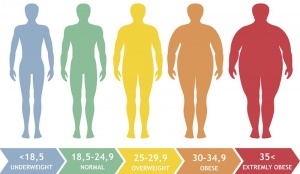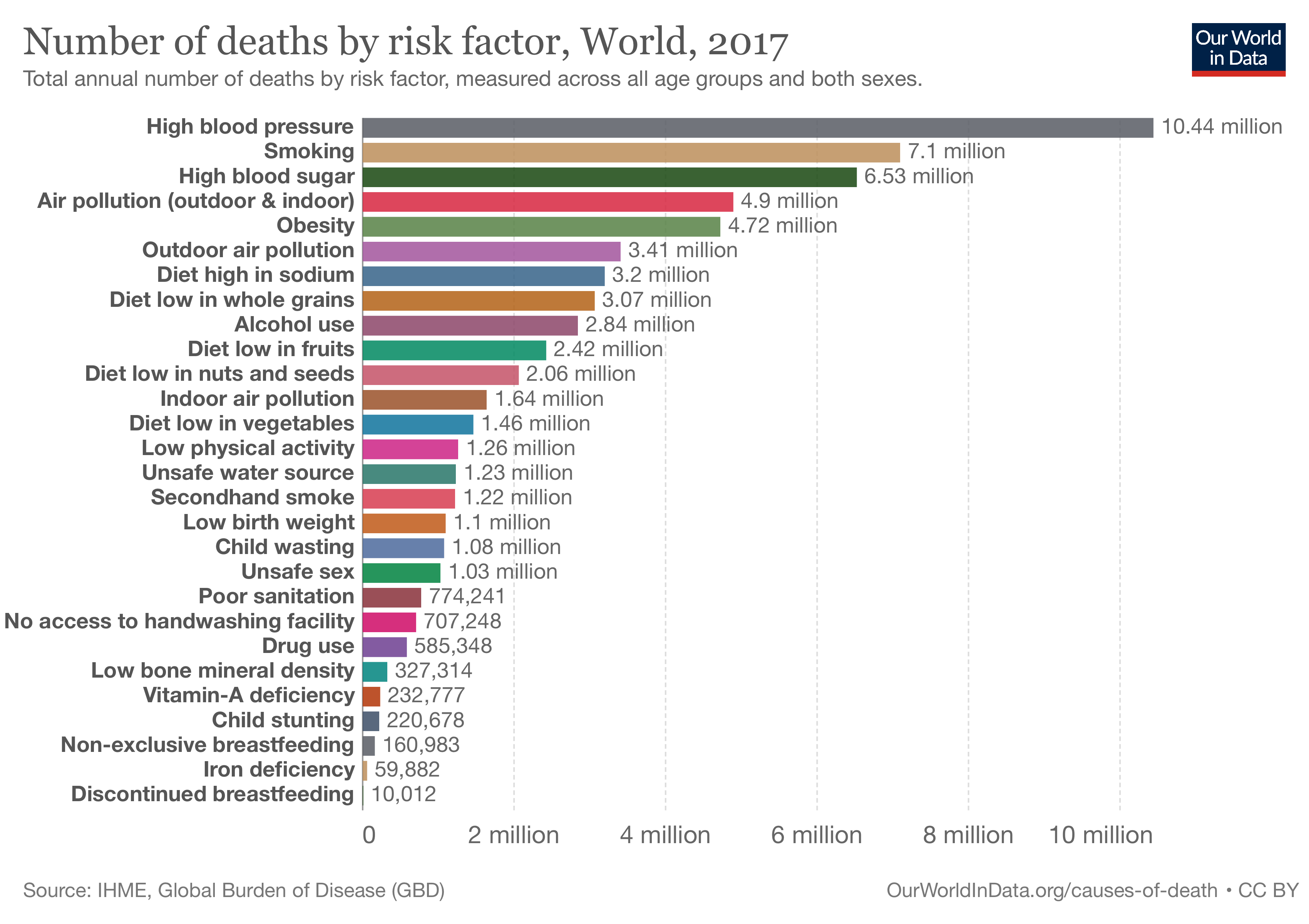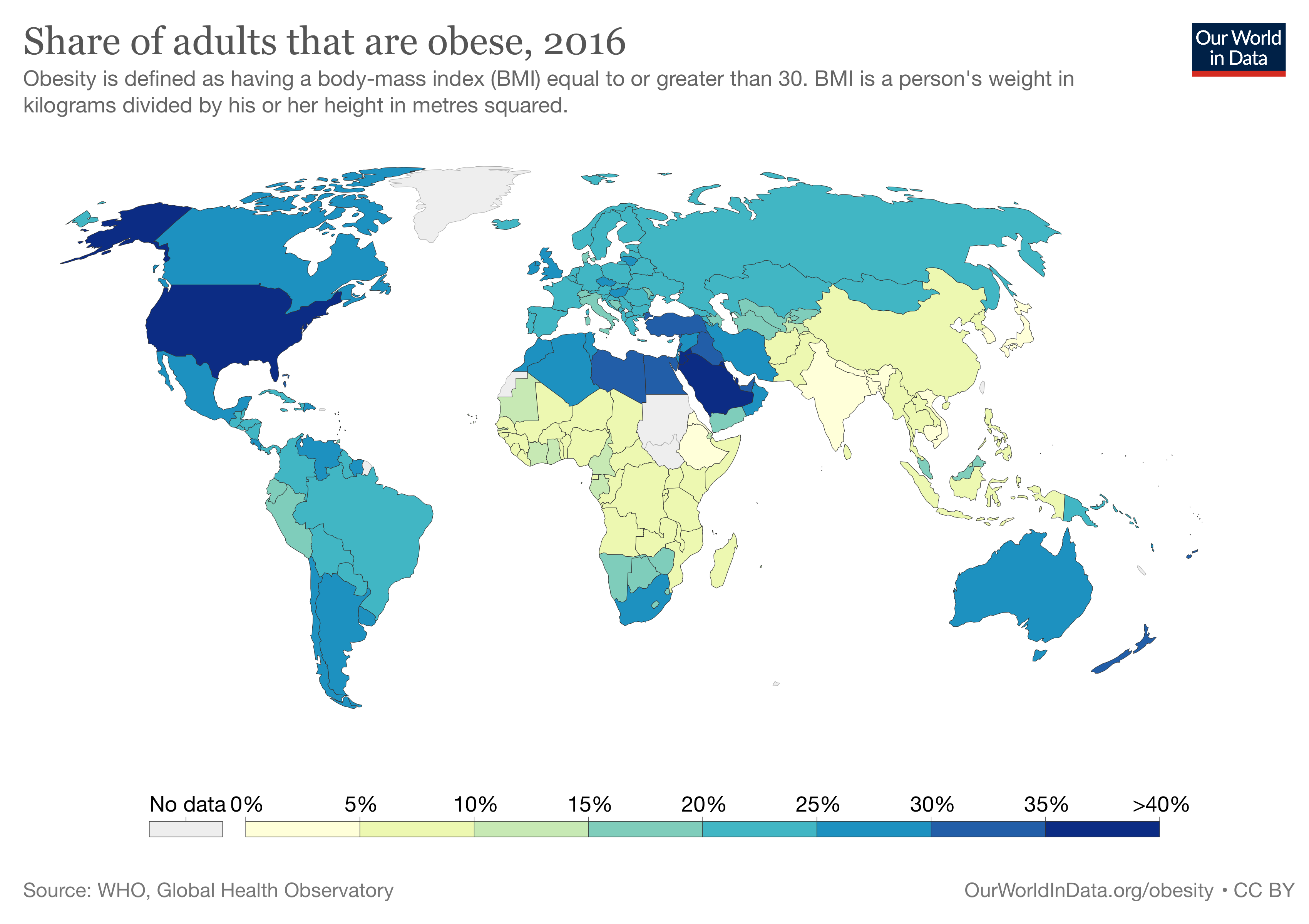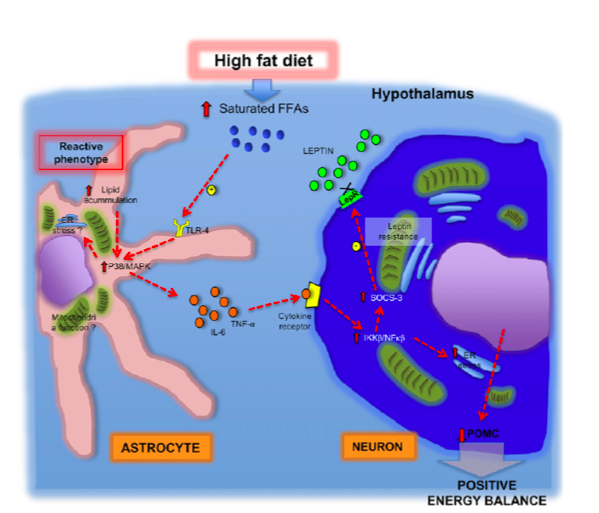
Obesity is now considered as a an epidemic that the public health is currently facing globally than malnutrition/ undernutrition. According to WHO in 2016, 2 billion adults were found overweight, of which 650 million of them are affected with obesity.

In the US, obesity has risen exponentially since the ’60s, which is also reflected with the busy “microwave” lifestyle that most Americans live, if looking at its prevalence in the United States. This thus implies a lack of time and investment in self-care, which in return opens the door for overconsumption of processed foods that are high calories, especially from fats and sugars.
This is very well alive in other parts of the world as well, regardless of the income level of the country. Below is a world map of obesity around the world.

Exposure to a high-fat diet and neuroinflammation in the Central nervous system has been shown to increase risks and causes for obesity, besides genetic predisposition. Changes in brain neurochemistry have impacts on the hypothalamus and its regulations for insulin and leptin levels and disrupt food consumption and energy.

This creates imbalance in food intake and energy consumption, caused by the insulin resistance that affect the hunger and satisfaction feelings.
The AgRP signals are released to create a feeling of hunger where as the alpha-MSH from POMC neurons allow for the feeling of satisfaction. The insulin resistance thus causes disruption, where there occurs more food intake than energy consumption. The insulin resistance can be caused by a high-fat diet or genetic mutation that cause neuroinflamation through the release of pro-inflamatory cytokines from the overactivity of mIcroglia and astrocytes.
ABT statement: A high fat diet is a measure trigger for obesity that is worth cutting down when considering underlying health issues, but there are various traditional cuisines around the world that have a fat heavy diet, therefore to what extent can culture be flexible to sustaining better lifestyle?
Artstract: